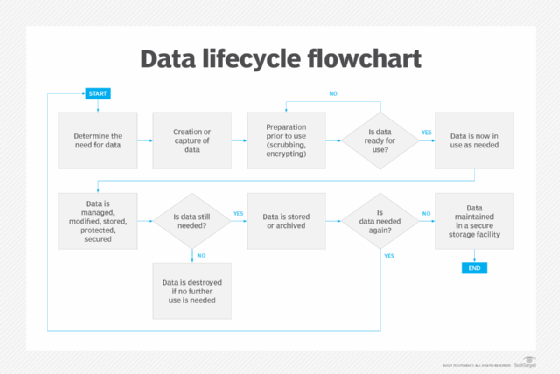Why Data Destruction is an Essential Part of Comprehensive Cyber Security
Why Data Destruction is an Essential Part of Comprehensive Cyber Security
Blog Article
The Relevance of Effective Data Destruction Practices in Safeguarding Sensitive Info and Ensuring Computer System Security
In an age where data violations are significantly usual, the relevance of reliable data damage techniques can not be overstated. Carrying out robust information damage methods not just reduces these risks but also aligns with lawful compliance requirements, making certain that organizations copyright their online reputation and foster customer trust.
Recognizing Data Devastation
Understanding information damage is important in today's digital landscape, where delicate info can easily be endangered. Reliable information damage entails not simply ensuring however removing files that data is irretrievable via comprehensive techniques. This procedure is vital for organizations that deal with confidential client info, intellectual residential property, or internal files, as any type of violation can bring about severe financial and reputational repercussions.
Data destruction encompasses different methods, consisting of shredding physical media, degaussing magnetic storage space tools, and employing software-based services that overwrite data several times. Each approach offers a particular function and has to align with the sensitivity of the info being disposed of. As an example, physical destruction is typically liked for disk drives containing very personal information, while software program techniques may be adequate for much less delicate details.
Furthermore, adhering to industry requirements and regulations, such as the General Information Defense Guideline (GDPR) or the Health And Wellness Insurance Coverage Mobility and Responsibility Act (HIPAA), is necessary for compliance and to alleviate lawful threats. Organizations needs to establish a robust information damage policy, train staff members on best techniques, and on a regular basis investigate their procedures to make certain that all delicate information is dealt with firmly and efficiently.
Dangers of Inadequate Practices
Inadequate information destruction techniques subject organizations to substantial risks that can have far-ranging repercussions. When delicate information is not appropriately gotten rid of, it remains prone to unauthorized gain access to, which can lead to information breaches and identification theft. Such incidents not just compromise the protection of individuals yet likewise stain the company's credibility, causing a loss of customer trust and prospective financial consequences.
Moreover, regulative compliance is progressively stringent in several markets. Failing to adhere to data destruction guidelines can result in substantial fines and legal activities against companies. These fines can divert and stress economic resources attention from core service procedures.
Furthermore, the misuse of residual information can cause copyright burglary or corporate espionage, endangering competitive advantages (data destruction). The effect of poor information destruction expands past instant economic losses; it can also result in long-term damage to brand integrity and market setting

Organizations need to identify that information security is not solely about avoiding breaches; it also incorporates the liable monitoring of data throughout its lifecycle. Ignoring effective data damage procedures can have devastating ramifications, highlighting the requirement for robust procedures to minimize these threats.
Ideal Practices for Information Destruction
Carrying out reliable information devastation techniques is crucial for safeguarding delicate information and maintaining compliance with regulative requirements. Organizations should embrace a multi-faceted strategy to make certain that information is irretrievable, thus avoiding unauthorized accessibility and prospective breaches.
First, information must be categorized based on sensitivity, permitting companies to apply suitable destruction approaches tailored to the degree of danger. For digital information, using software-based data-wiping tools that abide with market standards can properly overwrite existing data. Physical devastation techniques, such as shredding or degaussing, are essential for tools that keep delicate info, making sure complete eradication.
Developing a clear information retention policy is essential, outlining for how long different kinds of info should be retained go now prior to devastation. Normal audits of data storage space systems are additionally necessary to recognize outdated or unneeded data requiring elimination.
Moreover, training staff members on the significance of data destruction and the details protocols to adhere to fosters a society of protection within the organization. Keeping documents of data devastation processes offers responsibility and supports compliance with exterior laws and inner policies. By adhering to these best practices, organizations can substantially mitigate the risks associated with data direct Learn More Here exposure.
Legal and Conformity Factors To Consider

Failing to follow these regulations can result in serious fines, including considerable penalties and reputational damage. Organizations needs to execute a durable data devastation policy that straightens with these lawful frameworks and offers clear standards on the appropriate methods of information disposal, whether physical shredding or digital wiping.
In addition, maintaining paperwork of data destruction tasks is necessary for demonstrating conformity during audits or examinations. By prioritizing lawful and conformity considerations, companies can enhance their information safety and security stance and foster trust fund with stakeholders and customers, ultimately adding to a much more secure information monitoring atmosphere.
Advantages of Effective Data Damage
Reliable data damage practices extend beyond mere conformity; they offer substantial advantages to companies that prioritize them. By ensuring that delicate information is irretrievably damaged, companies reduce the threat of data violations and the prospective monetary effects linked with them. This positive approach not just safeguards versus unauthorized accessibility however additionally boosts the overall dependability of the organization in the eyes of clients and stakeholders.
Executing robust data damage approaches, such as physical damage of storage tools or sophisticated data cleaning methods, adds to the helpful site conditioning of a company's cybersecurity position. data destruction. It minimizes the possibility of intellectual building theft and shields proprietary info, therefore preserving an affordable edge on the market

Verdict
In conclusion, efficient data devastation techniques are essential for guarding delicate info and improving general computer protection. Inevitably, a commitment to robust data devastation strategies cultivates a society of obligation, thus strengthening a company's cybersecurity stance and keeping client trust.

Report this page